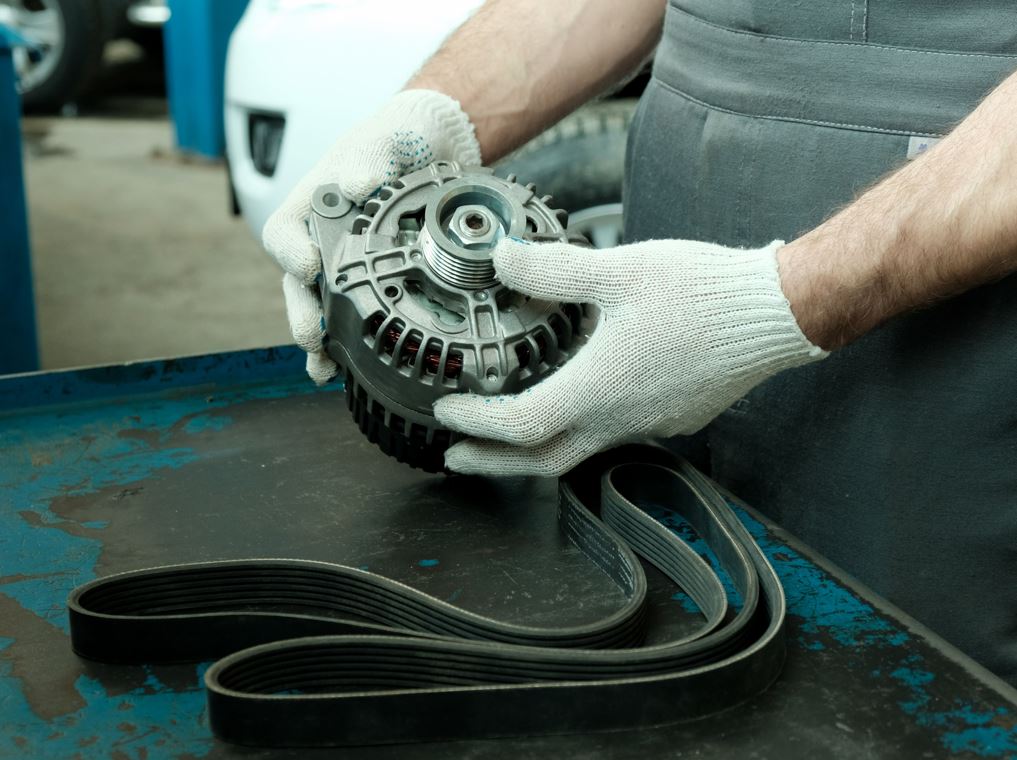The alternator is a mini generator that provides electricity for your car. On average, your alternator will last eight years before it needs to be replaced. When the alternator starts to wear out, you see signs it’s failing. As your Toyota dealer, we can provide an alternator repair. We’d also like you to know some signs that your alternator could be failing.

Check Battery Light
The battery-shaped light on your dash lights up if a problem is detected in your car’s electrical system. This light is connected to sensors attached to your alternator, battery, and other parts of the electrical system. These sensors monitor their attached components for signs of trouble and inform the computer if something is going wrong.
One of the problems that can trigger this light is a failing alternator. An alternator usually produces 14.5 volts. If all your electrical systems are running and the battery is recharging, the alternator should still produce at least 13 volts of power. If the alternator has worn down and produces less than 12.5 volts, this will trigger the warning light. Our technicians will test your alternator, and we can replace a failed alternator very quickly.
Dim Lights
Dim lights could mean that your headlight bulbs are due for replacement or you have a failing alternator. Headlight bulbs have a relatively short lifespan, but if you’ve replaced them recently, the alternator could be the problem. As an alternator gets older, its ability to generate power starts to fail. This is a gradual process, but it’s irreversible.
Eventually, the alternator reaches the point that it can’t supply all of your car’s electrical needs. Your computer will have to assign the limited available power. It does this by supplying many components with just enough power to switch on. Our technicians will need to test your alternator to determine if it’s the cause of the problem. If the alternator is failing, we’ll replace it.
Grinding Noises
Harsh grinding noises when your engine is running can mean your alternator is failing. Your alternator sits on two bearings, one in the front and one at the back. These bearings allow your alternator to spin as the alternator pulley turns. The spinning of the alternator generates electricity. The grinding noise could be from a cracked or broken alternator bearing.
The front bearing takes more strain than the rear bearing due to the movement of the alternator belt. If the bearing fails, this will cause damage to the alternator itself. We can replace a damaged alternator bearing if that’s the problem, and the harsh sounds will disappear.
If your alternator shows signs of strain, call us at Coughlin Toyota.





